For today’s “Mujinian Voice” series, we are introducing 2 software engineers: Kazuto and Kou.
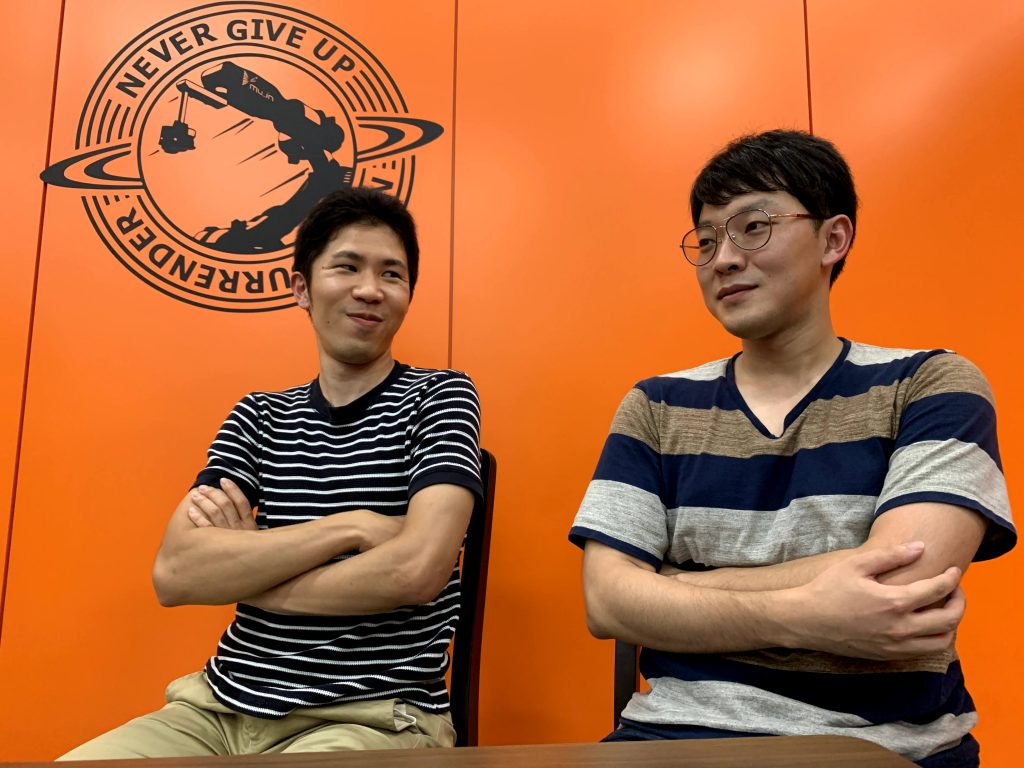
Kazuto studied at JSK, the prestigious robotics laboratory at the University of Tokyo. After several years at one of the major research companies, he joined Mujin. Now he is working as a software engineer in vision team. Kou was studying physics for his PhD at the University of Tokyo, he decided to quit and joined Mujin. He is now the lead software engineer in test.
ーー So, Mujin has many kinds of software engineer teams, doesn’t it?
I guess many people cannot imagine how is it like to move robots as software engineers. At Mujin, we have actually several software engineer teams such as Robot Systems, Frontend, Backend, Vision, and Test.
In order to move robots, every team has to involve in all the fields. We have to deal with not just software, but hardware, electronics, and mechanics. If any of these is lacking, robots won’t move.
Yes, that’s exactly right. Each field is closely connected, so every team has to understand the others’ technology. This is a challenging and exciting part!
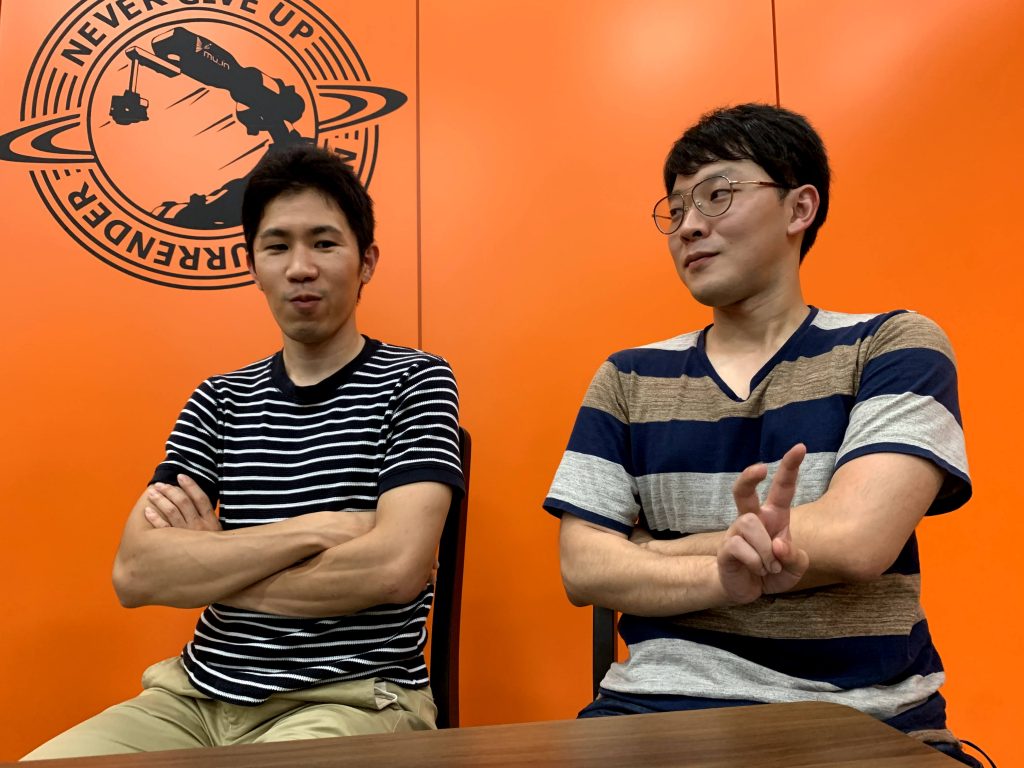
ーー What’s your job like?
The vision team, where I belong, develops so-called the “eyes” of robots. A robot has to grasp the environment in order to move. We let robots understand the surroundings, and the position and pose of the objects through sensors.
The software testing team is in charge of a wide range of tests. Each sector is related, and several components run in parallel. In addition, as hardware is also related, there are lots of noises or differences. So the testing here is very challenging.
In order to test a robot, we need to develop the test system first. We have to prepare simulators and hardware for the test. We sometimes test by ourselves or develop testing tools for other teams.
I also have lots of chances to talk with Kou. As each component relates to each other, communication is very important. While I am mainly in charge of the “eyes” of robots, I also work on the “brains” or solve problems in frontend fields. We have to know well in both hardware and software.
ーー So, does it mean people need to have strong experience in robotics to join Mujin software teams?
Not really. While Kazuto has strong experience in robotics since university, I don’t. I was major in Physics. I liked programming, but I didn’t have a robotics experience at all.
The good thing about Mujin is that people can play an active part even if you don’t know about robotics. You can study by yourself after you join. It is very exciting to move hardware with my own codes, which is totally different from the world working within software!

ーー Why did you choose Mujin?
I had researched home robots at a robotics lab “JSK” at the University of Tokyo. After graduation, I joined a research institute for the major automotive company and had continued the research home robots for another 5 years.
There I realized that home robots like Doraemon are quite a way off from implementation. There are still so many hurdles to overcome to make them practically useful from both technological and cost perspectives.
I have dreamed of inventing useful robots for society with my own hands. Considering the current technologies in the world, I realized we had to start with robots in a controlled environment. In the manufacturing and logistics scenes, human intervention is restricted with fences around. They are much more controlled compared to the home environment. Even in such an environment, there are yet many tasks robots cannot do.
Then, I thought I should work in this environment first. By working on robotics commercialization, I wanted to contribute to technological development and cost reduction in robotics. I have believed more complicated robots are an extension of this.
I checked several companies, but Mujin was appealing the most as it is close to the customers, and it really contributes to society. There were not many robotics companies realizing this.
Also, I used to be in the same lab with its CTO, Rosen, so I knew his extraordinal technical skill. I was sure that I can invent interesting things with him, who is still writing codes as well as facing customers by himself.
When I was pursuing a PhD in physics, I started to feel a sense of emptiness. I started to feel like doing something useful for people. I feel quite a number of people who drop out PhD have the same reason.
I found Mujin, and I thought that was what I was looking for. One of the major reasons people choose Mujin is to contribute to society.
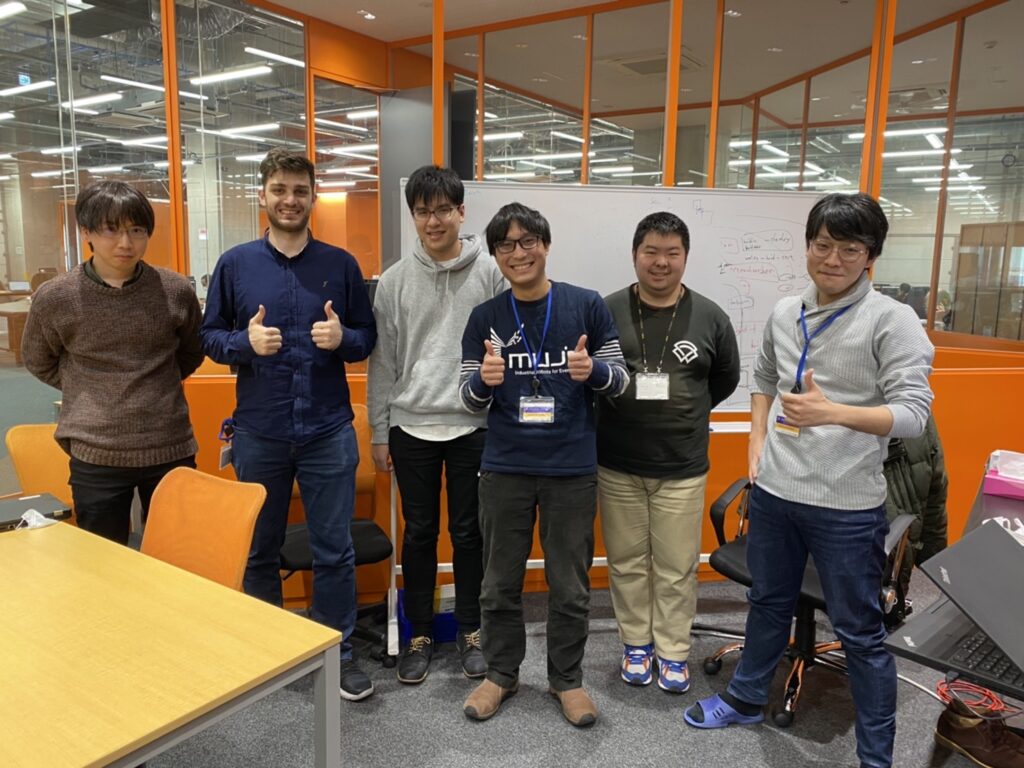
ーー How do you feel after you joined Mujin?
I can see my codes working at the actual customer sites. It is very impressive to find my own programs actually realize large-scare solutions but not just work in a demonstration.
The labor shortage is serious in logistics and manufacturing, where we provide our solutions. By realizing automation of heavy labor which was impossible before because of technical limitations, it is exciting to hear customers’ delighted feedback.
If it is for a demonstration, it’s fine if a robot moves for 30 minutes. But Mujin is making solutions need to keep working for 365 days. We have to guarantee stability on such occasions. The difficulty is totally different.
If there is an error, it will be directly connected to the customer’s loss of profits. If an error happens, restoration must be done immediately, and the cause should be thoroughly clarified to avoid happening again. In addition, we have to realize the high quality of performance and stability to achieve the capability enough to be useful at the actual sites.
There are very few companies that realize this level. Also, there are not many companies where you can contribute to society and develop your technology skills at the same time.
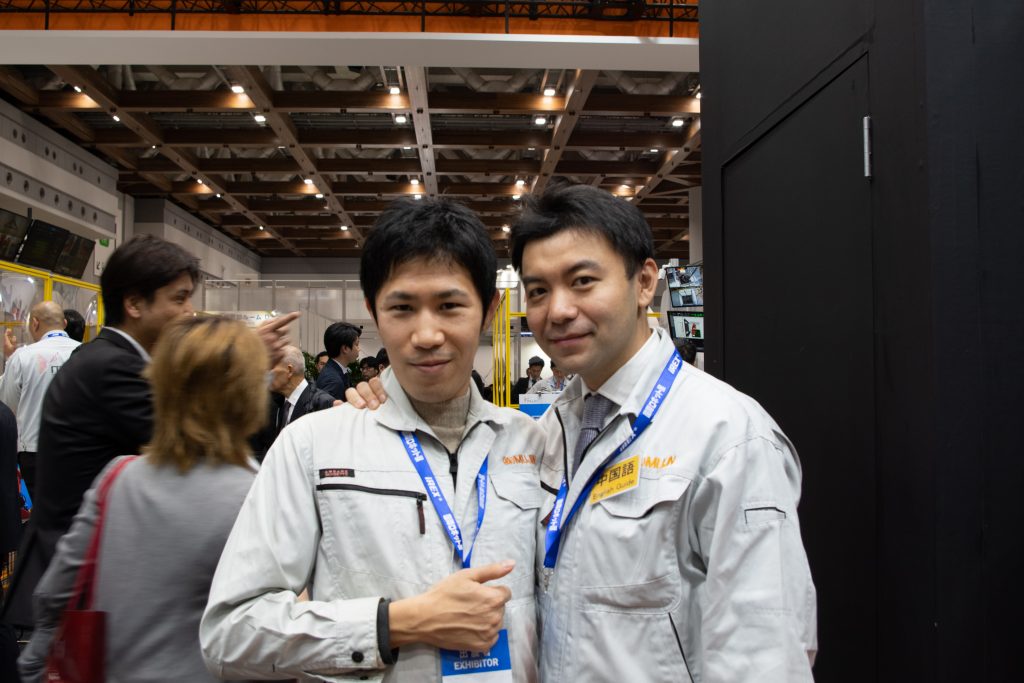
At Mujin, we are positive about challenging to what has never been done. It is very appealing to me that I can think and invent new things by myself.
At large companies, teams tend to be subdivided. Mujin doesn’t have that many people yet. There are no clear answers to problems, and each member needs to take the initiative and solve them. It is exciting to see my solutions working for customers.
ーー Which skill do you think is important as a software engineer at Mujin?
Needless to say, Mujin is a global company, and you don’t need Japanese at all.
And some people might think they have to be good at speaking English, but you don’t need to worry too much. For lots of members, English is 2nd or 3rd language. There are plenty of chances to improve your English skill after you join.
I had also spent more time on improving my technology skills than English. As long as you are strong in technology, people admire you and collaborate together on an equal footing. Also, I could improve my English a lot as I had lots of chances to communicate in English.
Of course, skill in robotics or English is a plus, but it is not a must. High Technical skills, passion for contributing to society, and the ability to take initiatives are important.
Mujin realizes what has never been possible, and invent actual solutions at customer sites. It’s not easy, of course. Hope many energetic engineers who sympathize our vision will join us and make innovations together!
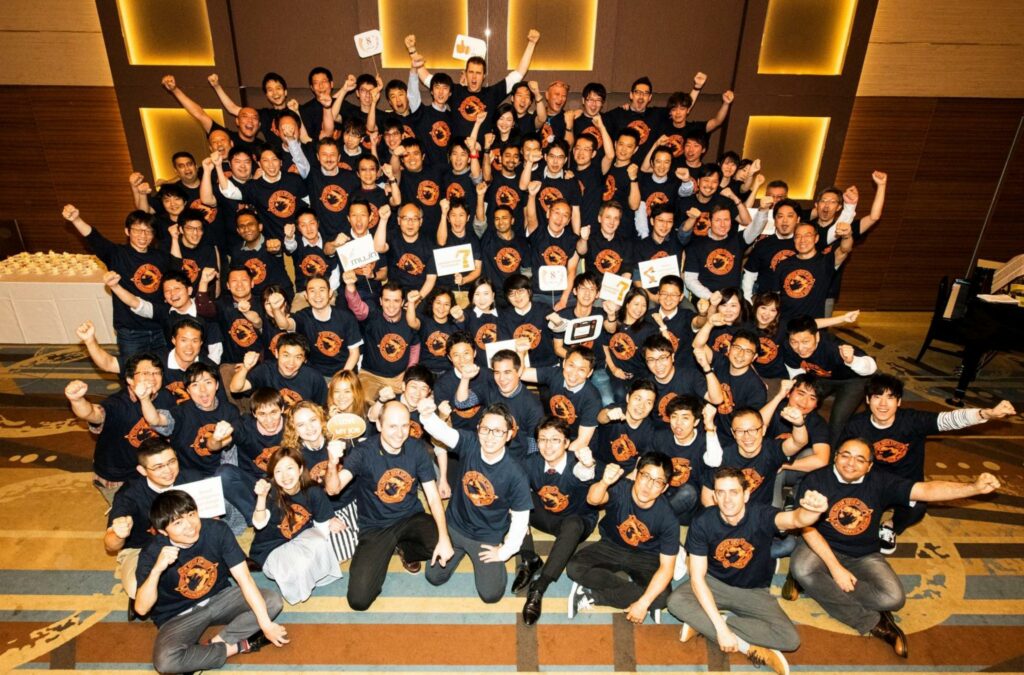
ーー Thank you, Kazuto and Kou!
